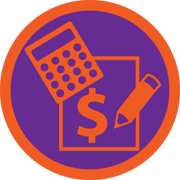A budget is a quantitative expression of a plan for a defined period of time. It may include planned sales volumes and revenues, resource quantities, costs and expenses, assets, liabilities and cash flows. It expresses strategic plans of business units, organizations, activities or events in measurable terms.[1] […] A budget is a fundamental tool for an event director to predict with reasonable accuracy whether the event will result in a profit, a loss or will break-even. A budget can also be used as a pricing tool.There are two basic approaches or philosophies when it comes to budgeting. One approach is telling you on mathematical models, and the other on people.
The first school of thought believes that financial models, if properly constructed, can be used to predict the future. The focus is on variables, inputs and outputs, drivers and the like. Investments of time and money are devoted to perfecting these models, which are typically held in some type of financial spreadsheet application.The other school of thought holds that it’s not about models, it’s about people. No matter how sophisticated models can get, the best information comes from the people in the business. The focus is therefore in engaging the managers in the business more fully in the budget process, and building accountability for the results. The companies that adhere to this approach have their managers develop their own budgets. While many companies would say that they do both, in reality the investment of time and money falls squarely in one approach or the other.
